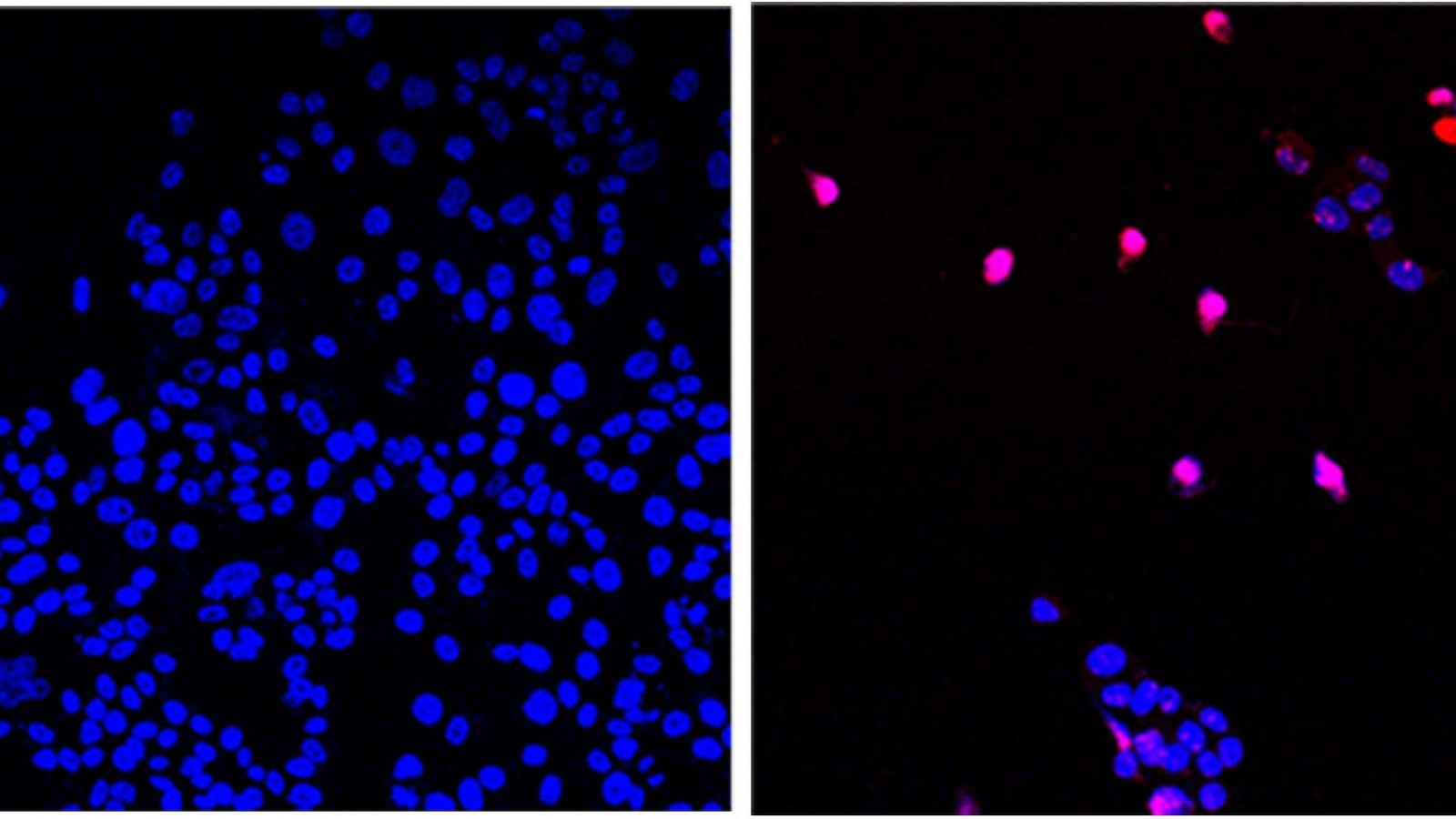A “cancer-killing pill” has appeared to “annihilate” solid tumours in early research – leaving healthy cells unaffected.
The new drug has been in development for 20 years, and is now undergoing pre-clinical research in the US.
Known as AOH1996, it targets a cancerous variant of a protein called proliferating cell nuclear antigen (PCNA).
In its mutated form, PCNA is “critical” in the replication of DNA, and the repair of all “expanding tumours”.
AOH1996 is being worked on by City of Hope, one of America’s largest cancer research and treatment organisations.
Professor Linda Malkas, who has been developing the drug, explained: “PCNA is like a major airline terminal hub containing multiple plane gates.
“Data suggests PCNA is uniquely altered in cancer cells, and this fact allowed us to design a drug that targeted only the form of PCNA in cancer cells.
“Our cancer-killing pill is like a snowstorm that closes a key airline hub, shutting down all flights in and out only in planes carrying cancer cells.”
Read more: AI tools ‘safely read’ breast cancer scans
While initial results are promising, the research so far has only concluded that AOH1996 can suppress tumour growth in cell and animal models – with the first phase of a clinical trial in humans now under way.
The pill has been shown to be effective in treating cells derived from breast, prostate, brain, ovarian, cervical, skin and lung cancers.
PCNA had previously been labelled as “undruggable” – and it is hoped the breakthrough could lead to more personalised, targeted medicines for cancer in the future.

